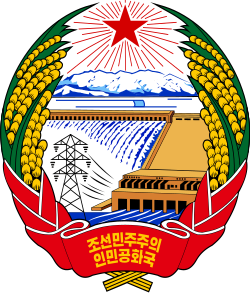 |
|---|
The law of North Korea (officially called the Democratic People's Republic of Korea) is a codified civil law system inherited from the Japanese and influenced by the Soviet Union. It is governed by The Socialist Constitution and operates within the political system of North Korea.